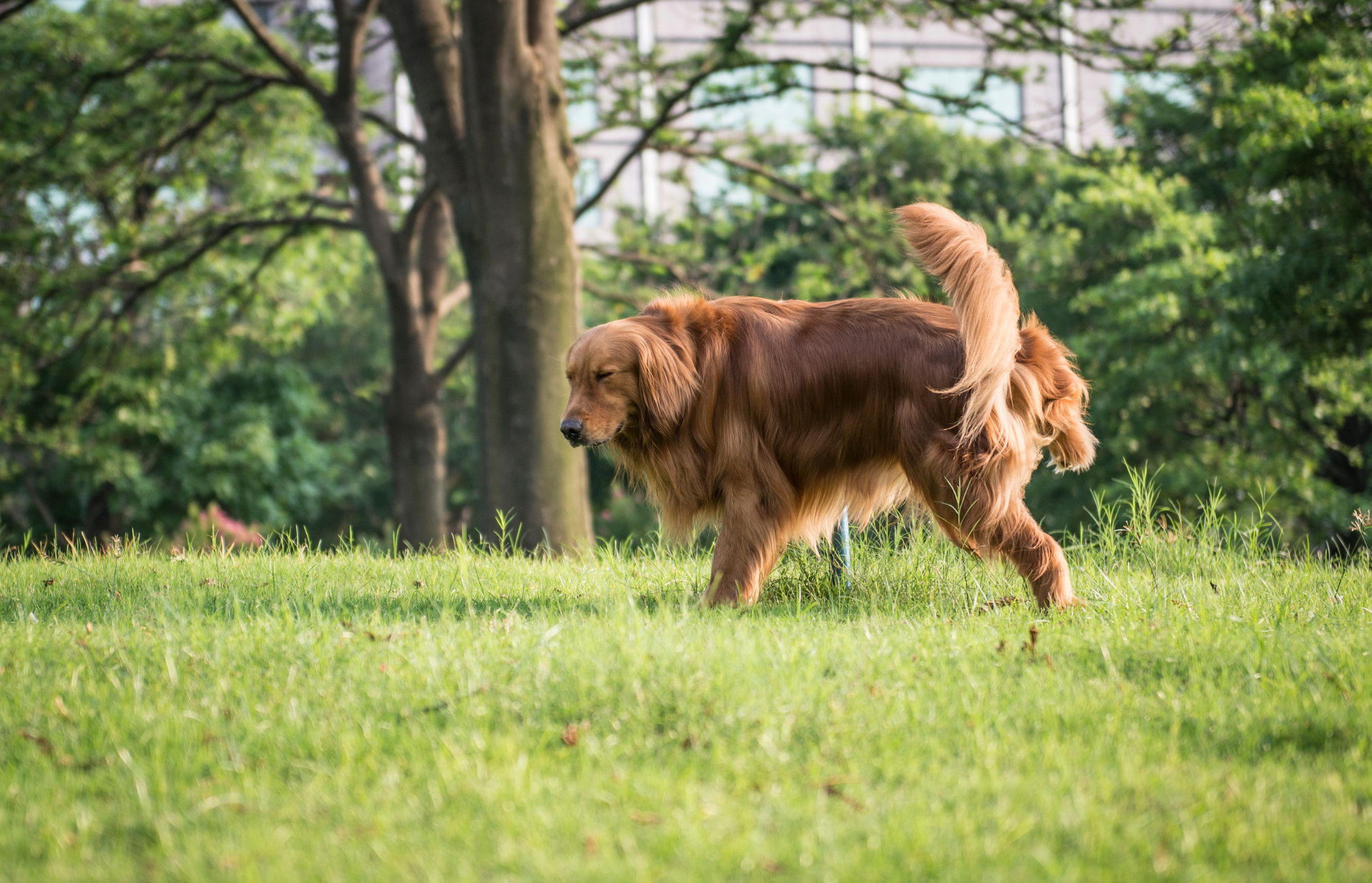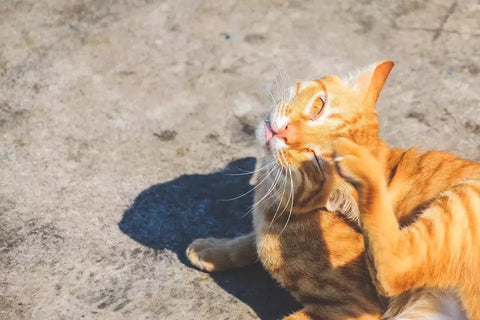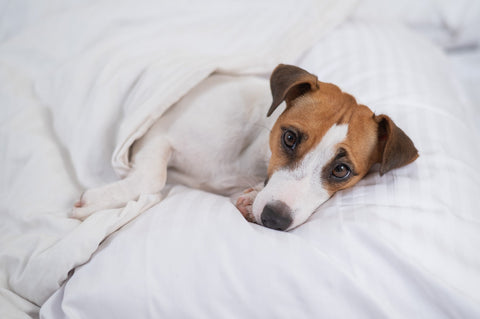How often is frequent urination in dogs? You're probably not the only pet parent who has ever wondered if your dog is peeing a lot. Polyuria is a term that means "peeing a lot" or "urinating excessively", but this is not necessarily an illness. As a matter of fact, there are an array of reasons, factors, and conditions that can affect your dog's frequent urination.
In this article, we’ll learn about what is normal for your dog and what is not, so you'll know when to call your vet for a talk.

"A dog's age can greatly impact how frequent they will urinate. Every dog is different but on average, puppies and senior dogs urinate more."
Frequent urination causes
Age and aging
How old is your dog? A dog's age can greatly impact how frequent they will urinate. Every dog is different but on average, puppies and senior dogs urinate more. Puppies urinate more because they are not yet fully able to control their bladder and seniors urinate more because their urinary sphincters (two muscles used to control the exit of urine in the urinary bladder through the urethra) weaken as they age.
Seasonal and weather changes
A change in weather, season, or climate, can affect your dog's frequency of urination. In warmer months, your dog will need more water. The more water your fur-baby consumes, the more they will urinate.
In colder months, your dog's body tries to keep their core warm by constricting blood vessels and reducing blood flow to the skin. To regulate the blood pressure, the kidney filters out some of the excess fluid from the blood, to reduce its volume. As their bladder fills up with the excess fluid, they will feel the frequent urge to pee.
Spay or neuter incontinence
Ironically, while getting a dog spayed or neutered can lessen the chances of them creating accidents, spaying or neutering can also lead to cases of incontinence. There is a big difference between a dog peeing frequently because they need to, and a dog experiencing incontinence where one pees involuntarily.
According to the Washington State University, hormone-responsive incontinence can occur sometime after your pet is neutered. As pets age, there may be a weakening of the muscles that hold urine in the bladder.
Same goes for spay incontinence, after a female dog is spayed, the strength of her urethral sphincter decreases in the following years after her surgery. According to Wag Walking, as your female dog gets older, the strength of the urethral sphincter decreases. This is so because there is a decrease in the estrogen levels after spaying and this may cause a decrease in the functions of the urethral sphincter and its surrounding tissues.
Take note that there are also other reasons for spay or neuter incontinence. These include bladder infections and other underlying diseases. If you suspect your dog could have an underlying problem, consult your vet.
Health conditions
As a pet parent, knowing that your dog is suffering from something can be very overwhelming and stressful. Especially if it's a urinary disease. Your dog might be peeing a lot because they are suffering from the following:
Urinary Tract Infection. When your dog has a urinary tract infection (UTI), they will be having a hard time urinating as it can be painful and may have blood in their urine. And because the infection irritates their private organ, it increases your dog's need to urinate.
Diabetes. Diabetes is a disorder that happens between the glucose-insulin connection in the body. If your dog has diabetes, you'll notice that they may start to vomit more frequently, lose their appetite, have less energy, develop kidney infections, and UTIs.
Kidney Infection. Kidney infection happens when your dog is exposed to toxins and infections that causes the kidney to lose its abilities to function well for the body. A dog that has kidney failure will drink a lot and will urinate more than usual.
Additionally, frequent urination by your dog at night can also be affected with an underlying health condition. If your dog is peeing at night more than they used to, a medical problem could be affecting their stress levels and sleep routine.
Proper management

When your dog is frequently urinating (regardless of the cause), you can help them manage it and improve their quality of life by:
Providing proper nutrition. Providing your dog a good, healthy diet is a perfect way to boost up their wellness and replenish the fluids lost due to their frequent urination. Make sure to provide your fur-baby with only the best holistic diets that are suitable and vet-recommended.
In addition to a healthy diet, you can also offer your dog with Pet Parents® Bladder SoftSupps®. These bladder supplements contain:
- Pacran®, the most scientifically-proven cranberry product for urinary tract health, that makes use of the whole cranberry complex to help promote optimal bladder health in dogs.
- Pumpkin seed extract, a botanical extract that strengthens normal bladder muscle function and healthy peeing
Staying on top of their hygiene. Bathe your dog regularly and groom them to keep them clean and happy. Also, it’s important to never allow your dog to get soiled in their own pee as prolonged contact to urine may cause urine burn.
Having them wear dog diapers. Have your fur-baby wear Pet Parents® Washable Dog Diapers which are a great help in keeping your dog comfortable and your home clean since dogs who urinate frequently tend to create more accidents. These diapers are made with a soft non-abrasive WickQuick® proprietary fabric that absorbs any liquid and moisture fast. Also, you can add Pawtect™ Pads as an added leakage protection. You can use these pads as a pet bed bedding, furniture covering, crate lining, etc.
Visiting your vet. If you worry about your dog peeing too much, consult your vet for peace of mind. Taking your dog to the vet will clear all your confusions because the vet will perform tests for proper diagnosis and prescribe the right treatment.
Many conditions can make your dog pee frequently and you should be able to learn to identify which is which so you can manage it properly - all this for a happy, healthy life for you and your fur buddy.

"Pet Parents® Bladder SoftSupps® contain Pacran®, the most scientifically proven cranberry product for urinary tract health in dogs."









